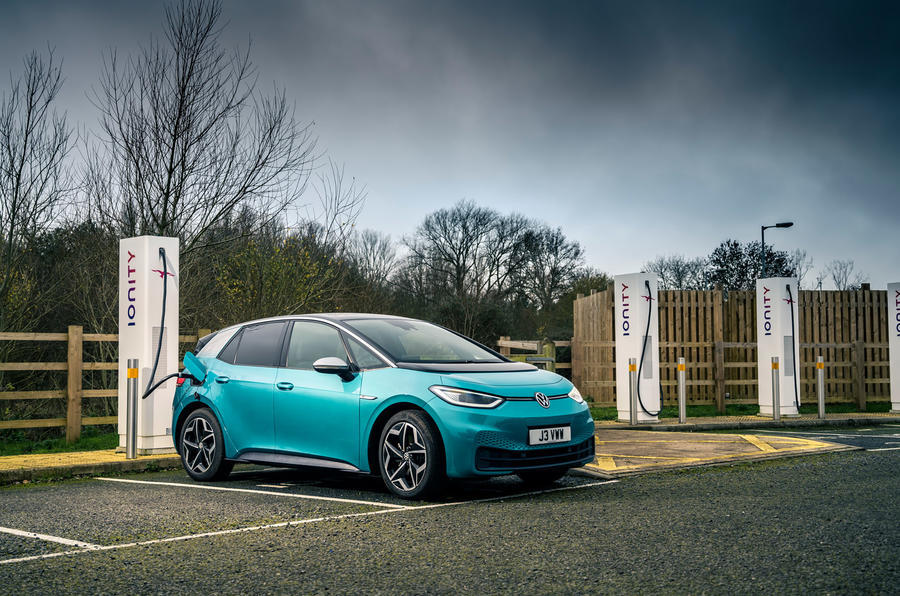Rachel Maclean, minister for the future of transport and decarbonisation, has admitted that the government needs to do more to improve EV charging infrastructure in the run-up to the 2030 ban on new combustion-engined car sales.
Speaking at the Financial Times’ Future of the Car summit, Maclean said: “We do need to do a lot more on the infrastructure side of things. We made it very clear what our overall timeframes are… and side by side with that, we’re working through the details of how we are going to deliver the infrastructure that we require.
To receive the latest industry news, please click here to sign up to the Autocar Business newsletter
“Clearly we need more charging points. We have started to plan those investments as we are targeting to have six rapid charge points at every motorway service station by 2023.”
The government is also aware that it is not just rapid chargers at service stations that are needed. Maclean highlighted the issue of charging devices for flats and within new housing developments: “We also need to roll them out much more widely; in new-build housing, for example.
“We need to make sure that when people are retrofitting blocks of flats, that the car parks have electric vehicle charging points. There is a lot more to do and a huge amount of work to do.”
Turning to the loss of tax receipts that the government will suffer as more people switch from ICE cars to EVs, Maclean was clear that there were no existing plans to make up the loss with other revenue raisers. “I cannot see that happening under this government. Matters of taxation are matters for my friend, the chancellor of the exchequer, but at the moment this government has been crystal clear: we have an overriding emergency on our hands… of the warming planet and we have to tackle that. The only way we do that is by a co-ordinated effort so it would be completely illogical for us to pull out of these sorts of support.”
With regard to the future of ICE cars, and whether used versions of these will also be banned eventually, the minister said there was no plan, at this stage, to phase these out by a certain deadline. “It’s not our current objective. We know the fleet usually turns over in a certain amount of time… so we believe we will be able to tackle the issue of emissions from cars by setting this [2030] phase-out date and investing in the infrastructure that’s needed.”
READ MORE





Join the debate
Add your comment
I agree this is ill advised nonesense.
I still cant see what is in it for petrol station owners to move to all electric stations....lets say the average 'fill-up on a car (proper car, not a milk-float) is £50. Lets also say that pre the govenment loading extra tax on electricity a high-speed charger is half that amount - £25 (other than motorways). ICE car takes 5 minutes or less to fill EV 30-45 minutes. Have you calculated the loss of turnover here. It will make the outlets non viable!
'Decarbonisation' is a fashionable answer to the non-existent problem of Climate Change and a total absurdity.
Russia, China, and India are laughing at us and are astonished at our technical illiteracy and stupidity.
Thankfully, I left the UK many years ago.
I'm keen to see which other countries are so stupid as to ban the sale of new petrol and diesel-powered cars by 2030, but I very much doubt this crazy idea will be implemented.